Displaying items by tag: montenegro
November 18, 2020 - The world leader in geography, cartography, and research, "National Geographic Traveler", has ranked Montenegro as one of the world seven most attractive family holiday destinations in 2021.
National Geographic Traveler (UK) published the list "Best of the World 2021", revealing inspiring stories about 35 extraordinary places, and in the article "The best of the world: seven unforgettable family trips for 2021 and beyond", Montenegro, as the second on the list, side by side with world destinations such as Japan, USA, Canada, and Great Britain.
The list of "Best of the World 2021" consists of five categories - sustainability, nature and wilderness, adventure, culture and history, and family travel. Each of them is characterized by excellent destinations with a relevant story for the coming year. Profiling inspiring places, communities, and innovations, the list provides an optimistic number of places to escape from reality and what precautions should be taken due to the pandemic by those who want to travel around the world.
Montenegro on the National Geographic Traveler's Top Family Destinations List for 2021
Bikes, hikes, and zip-wire adventures
How does Montenegro fit so much in? This Adriatic escape is smaller than Northern Ireland, yet bursting with snow-capped mountains, jewel-box lakes, rushing rivers, charming towns, and gregarious locals. Cheaper and less visited than neighboring Croatia, yet for so long, its bridesmaid, 2021 looks like a breakthrough year.
Adventurous families will be in their element here. Five national parks protect over 60 peaks where hiking, biking, canyoning, and rafting are options. Tour operators like Responsible Travel, Families Worldwide, and UTracks have active itineraries, and a Tailor Made Rail trip added last year reminds us that you can also get there by train, including a stint on the stunning Belgrade-to-Bar route.
It's not all about adventure, of course. Montenegro's is a short but glittering coastline (avoid the crowds by visiting in shoulder season). A new hotel action includes an elegant Avanti in Buda and the One & Only Portonovi, set to open in spring at Boka Bay, close to the terracotta-topped town of Kotor. Marriott plans to bring the Ritz-Carlton brand to Montenegro in 2023, too.
Original article by National Geographic Traveler
https://www.nationalgeographic.co.uk/travel/2020/11/best-of-the-world-2021-family
October 22, 2020 - The National Tourist Organization of Montenegro and the local tourist organization of Tivat, with the support of the hotel "Regent Porto Montenegro" and "The Chedi Lustica Bay," have organized a study visit by representatives of one of the most famous music television channels in Russia "Muz-TV" - the Russian MTV, who are staying in Montenegro from October 21 to 26.
The five-member news team from"Muz-TV" is in Montenegro to record a travel show "Vacation Without Trips" (Holiday Without Travel), through which viewers will have the opportunity to get acquainted with what's on offer to tourists in the coastal, central and northern regions of our country. The author of the show "Vacation Without Trips" (Holiday Without Travel) is famous Russian host and influencer Andrei Razigraev, who visits destinations worldwide, explores exciting stories from the local population, and offers advice on what to experience in the area.
Footage for the show will be filmed in Tivat, Kotor, Herceg Novi, Budva, Cetinje, Danilovgrad, Plužine and Žabljak.
The journalists, who are currently staying in Tivat, had the opportunity to visit the rural household "Pony Art Garden" in Luštica, to cruise the Bay of Kotor and visit Kotor and Perast. Continuing their visit, they will see the Capital of Cetinje, NP Lovćen, and the village of Njeguši.
Representatives of "Muz-TV" will visit the north of Montenegro, Plužine, and Žabljak, where they will have the opportunity to experience something of what is offered in terms of active nature holidays, through the tour Ring around Durmitor. They will record footage on Black Lake and try the zip line on Đurđevića Tara.
"Muz-TV" is one of the most famous music televisions in Russia with a viewership of over 1 million, and their Youtube channel "Muz-TV" has a high rating, with about 1.36 million views per month. The TV show "Otpusk bez putevki" (Holiday Without Travel) is most-watched among the audience's younger and middle generation. The episode filmed in Montenegro will be premiered by the end of this year.
October 19, 2020 - Montenegro has welcomed this year’s European Commission report in a better mood. Not because the administration (or citizens) hoped for better grades as a result of hard work in the past year and a half, but because the country is waiting for a new government, the first without Djukanovic’s Democratic Party of Socialists (DPS) in 30 years. All eyes are on this new government, which must take at least some important steps to speed up the country’s path towards EU membership. However, many challenges lie ahead for it, at least when it comes to what is stated in this year’s EC report, writes politologist Jovana Marović for the Balkans in Europe Policy Advisory Group- BiEPAG.
The Balkans in Europe Policy Advisory Group (BiEPAG) is a cooperation initiative of the European Fund for the Balkans (EFB) and Centre for the Southeast European Studies of the University of Graz (CSEES) with the aim to promote the European integration of the Western Balkans and the consolidation of democratic, open countries in the region. BiEPAG is composed of prominent policy researchers from the Western Balkans and wider Europe who have established themselves for their knowledge and understanding of the Western Balkans and the processes that shape the region.
The Commission’s assessment of the situation in the country is as expected. Montenegro has continued to make limited progress in most chapters, thus maintaining an average overall score, which is disappointing more than eight years after the opening of accession negotiations. This year has affected this attitude to such an extent that the crisis caused by the coronavirus has allowed the reforms to be put “on hold”. The negotiations themselves have been stuck for some time, despite the Commission’s new methodology presented in February, and regardless of the fact that Montenegro accepted it, even though it was not binding for the country. This is certainly a good sign, in the sense that it sends the message that Montenegro wants to negotiate under stricter conditions, but without a clear picture on either side of when this could bring significant results.
Many things are repeated in this report that also appeared in previous iterations, which on the one hand indicates a lack of progress, while on the other hand again raises the question of whether the Commission’s reports are a sufficient guide to candidate countries for reforms and whether this most visible mechanism should be even more concrete. In this report particular attention is paid to the general atmosphere and functioning of the system, as well as the situation in the country when it comes to polarisation, alongside the politicisation of institutions and the involvement of all actors in the democratic process, particularly in the parliament, and its role in democratisation. It is problematic that some scandals have been continuously mentioned in the report almost since the beginning of negotiations. The details of the DPS’ governing body session were published back in February 2013, revealing the party’s mechanisms of misuse of public resources for election purposes (known as “the audio recordings affair”), and this has found its place in every annual report of the Commission on Montenegro. In each report, the EU seeks “the political and judicial follow-up of the alleged misuse of public funds for party political purposes” to which the government is persistently turning a blind eye. The same goes for the many other scandals and abuses we have witnessed. This is mostly what any response to the Commission’s recommendations looks like in practice if it demands reactions and cuts that are in direct conflict with the party’s interests. This is also the first guideline of what should be done in the future for better results.
The Commission has maintained the practice of defining priorities for key areas, for example in the section relating to the fight against corruption, pointing out problems in the work of the Agency for Prevention of Corruption, the manner of conducting financial investigations and securing track records both in prevention and repression. In practice though, the institutions persistently respond only to some of the problems identified, while there is no link between the European Commission’s instruments and greater pressure to address and adequately respond to the burning issues. In this sense, the recommendations/priorities could be even more concrete and measurable. In principle, a clear task and an answer to it also give a basis for a stronger assessment of whether it has been fulfilled or not. In other words, this should be an important matter in the application of the new EU methodology – linking specific priorities with clearly-announced incentives and sanctions.
In short, this year’s European Commission report confirmed that Montenegro is a country with serious problems in the judiciary, the electoral system, and the functioning of the state system in general, with corruption at all levels. It is also strongly polarised as a society. Montenegro also continues to respond to these problems partially and superficially, which requires a stronger and more serious reaction from all actors in society. A more committed partner from Brussels is needed to turn things around and achieve better results.
Author: Jovana Marović
Jovana Marovic is Executive Director of the Politikon Network, a think tank based in Podgorica. She studied at the Faculty of Political Science in Belgrade where she received her doctorate. Between 2004-2016, Jovana worked as a Counselor for the European Union in the Ministry of Foreign Affairs’ multilateral department, Advisor for International Relations and European Integration within the Cabinet of the Budva Municipality’s Mayor, Research Coordinator at the Institute Alternative (think tank and scientific research institute) and Special Advisor to the Minister of Labor and Social Welfare. She is also engaged in lecturing. Jovana is a Member of the Working Group for Chapter 23, Judiciary and Fundamental Rights, within the Montenegrin Accession Negotiations for EU membership.
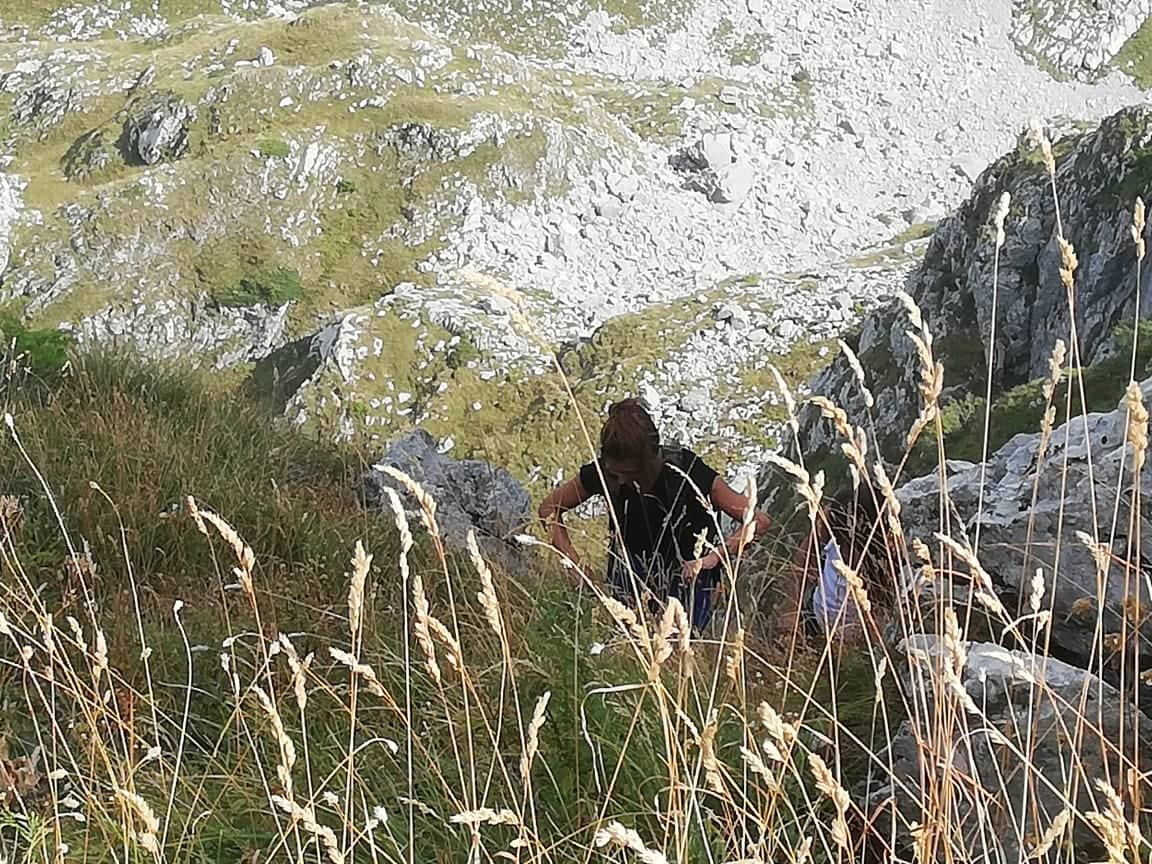
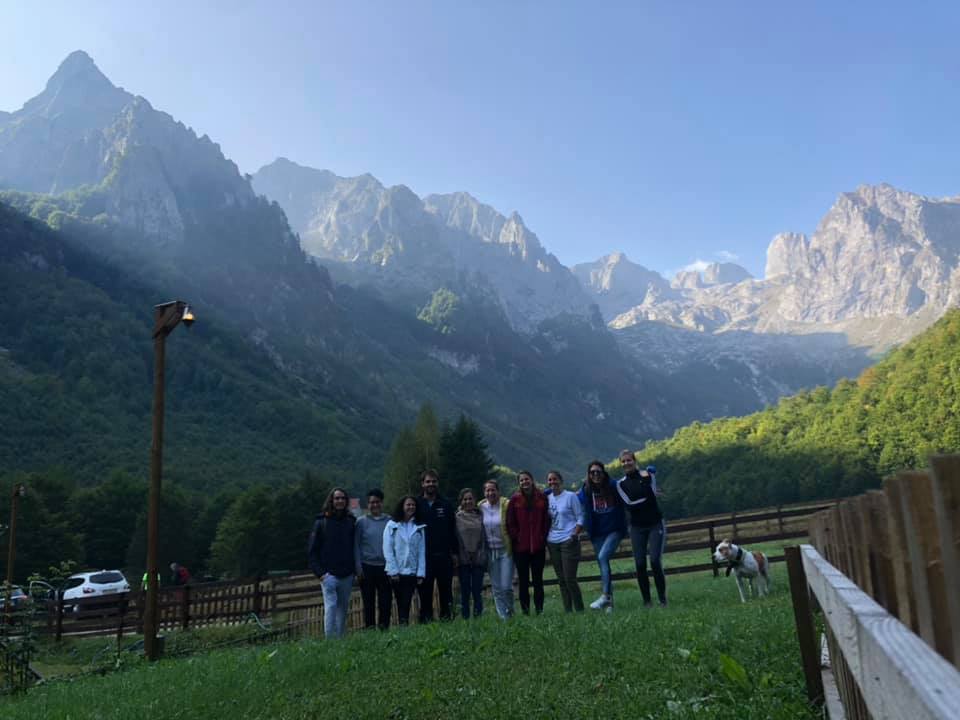
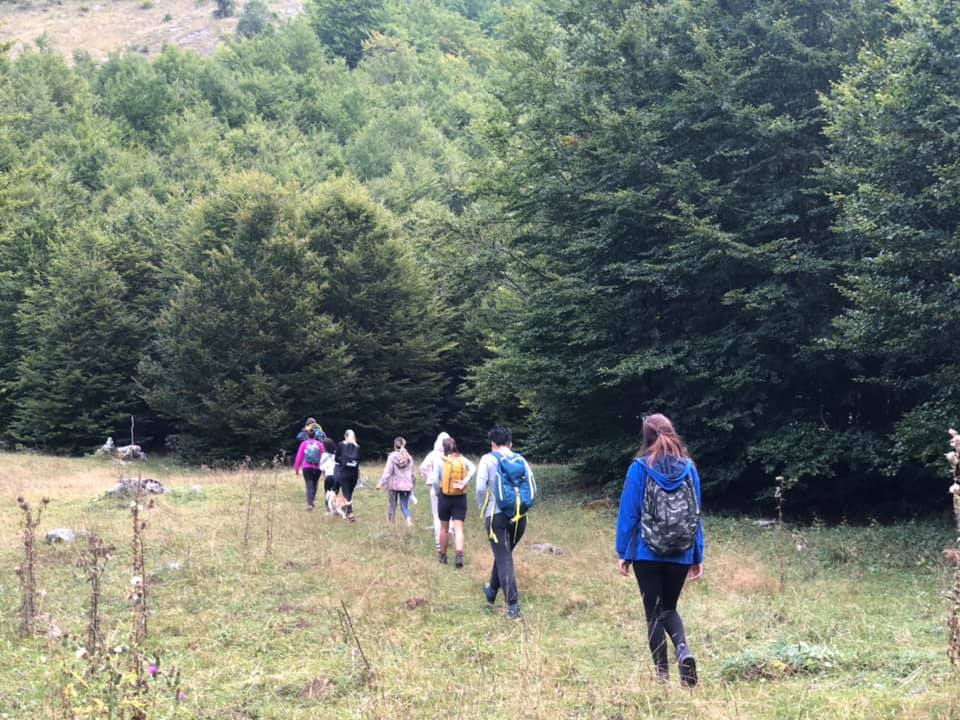
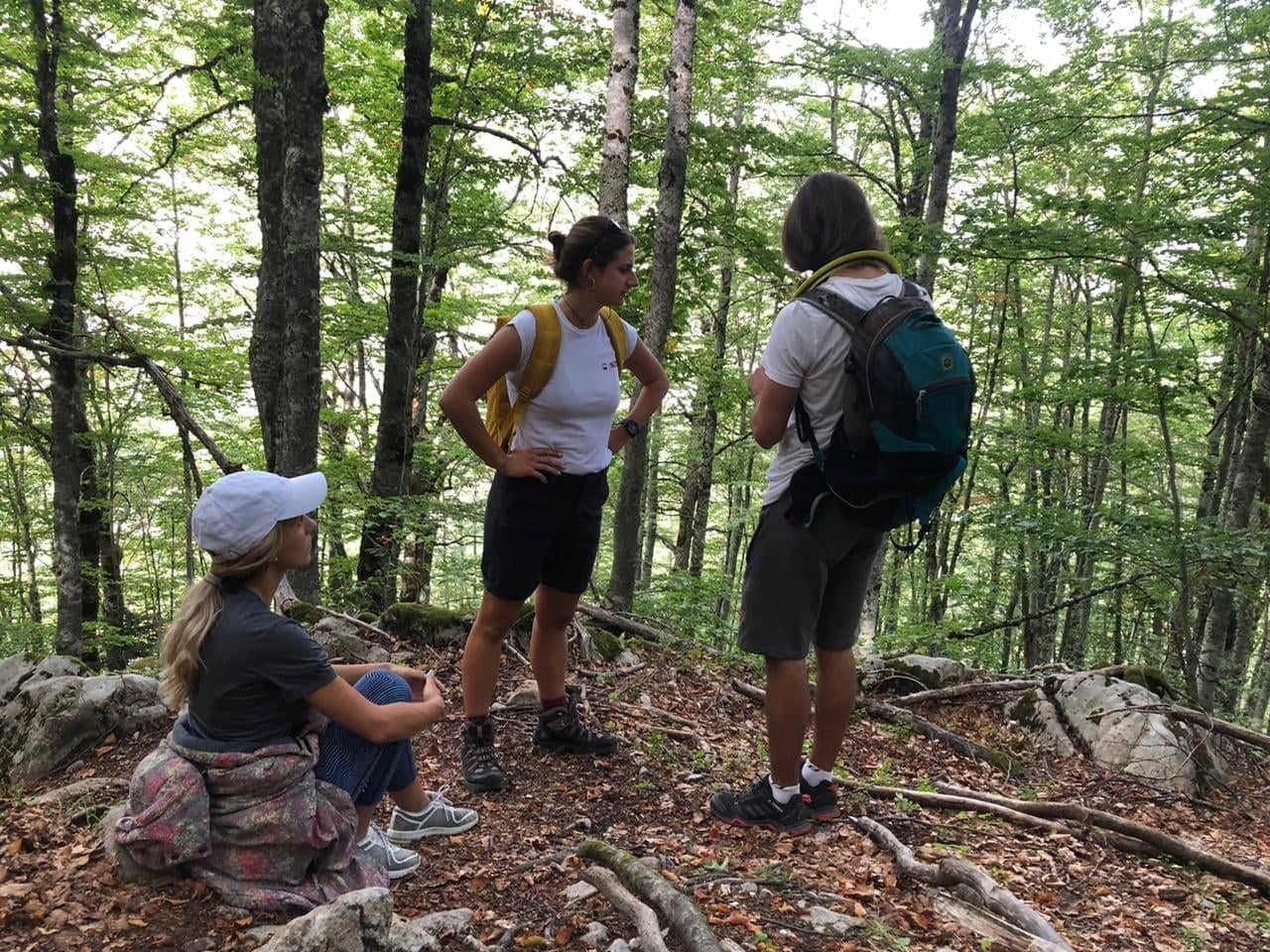
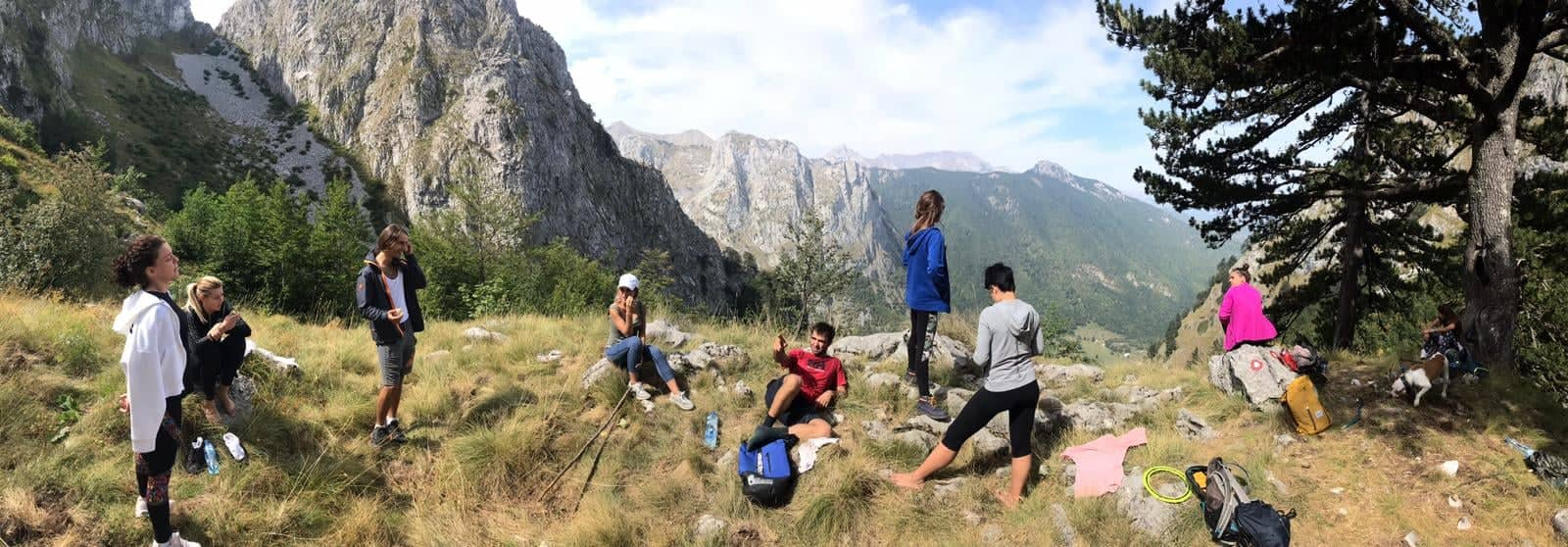
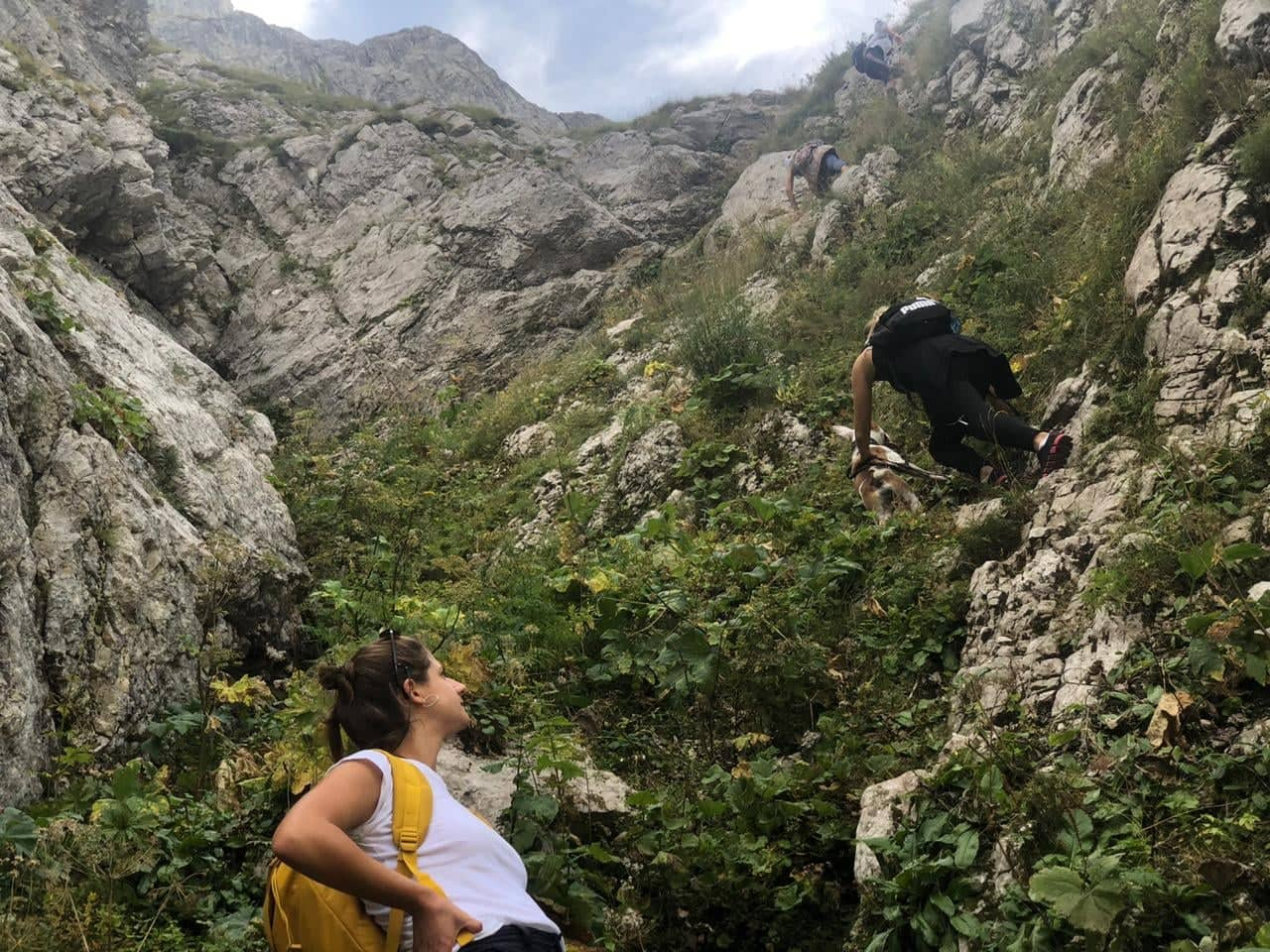
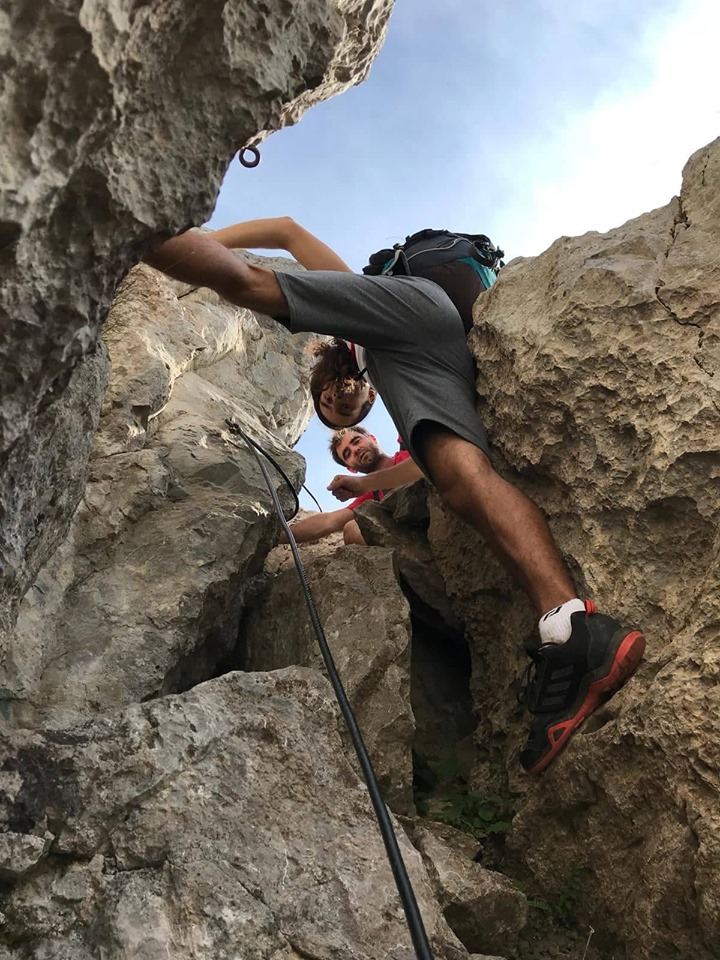
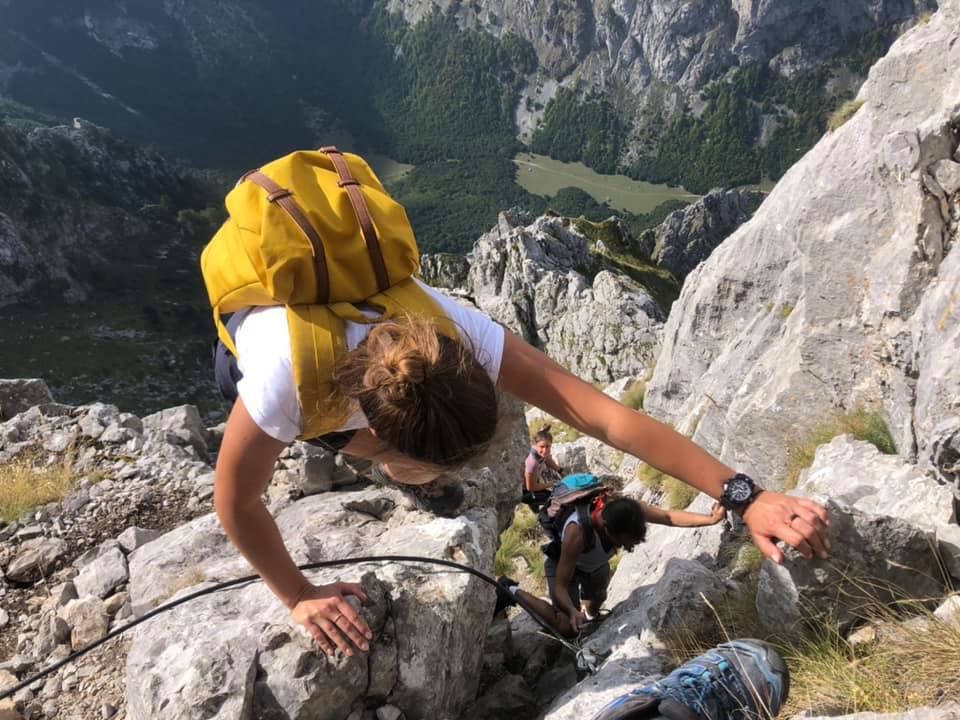
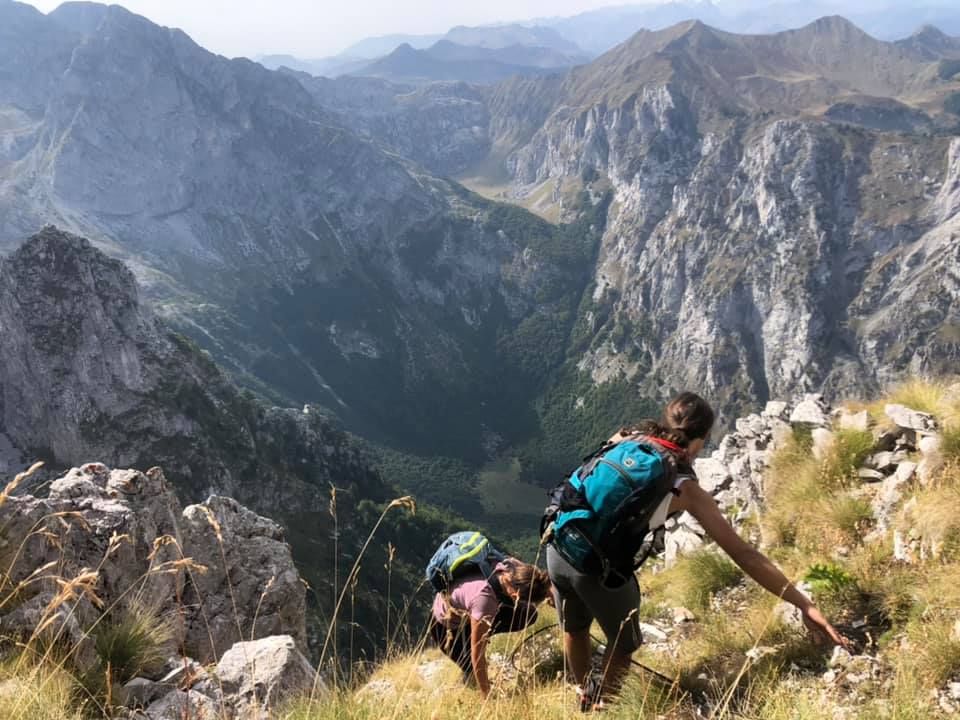
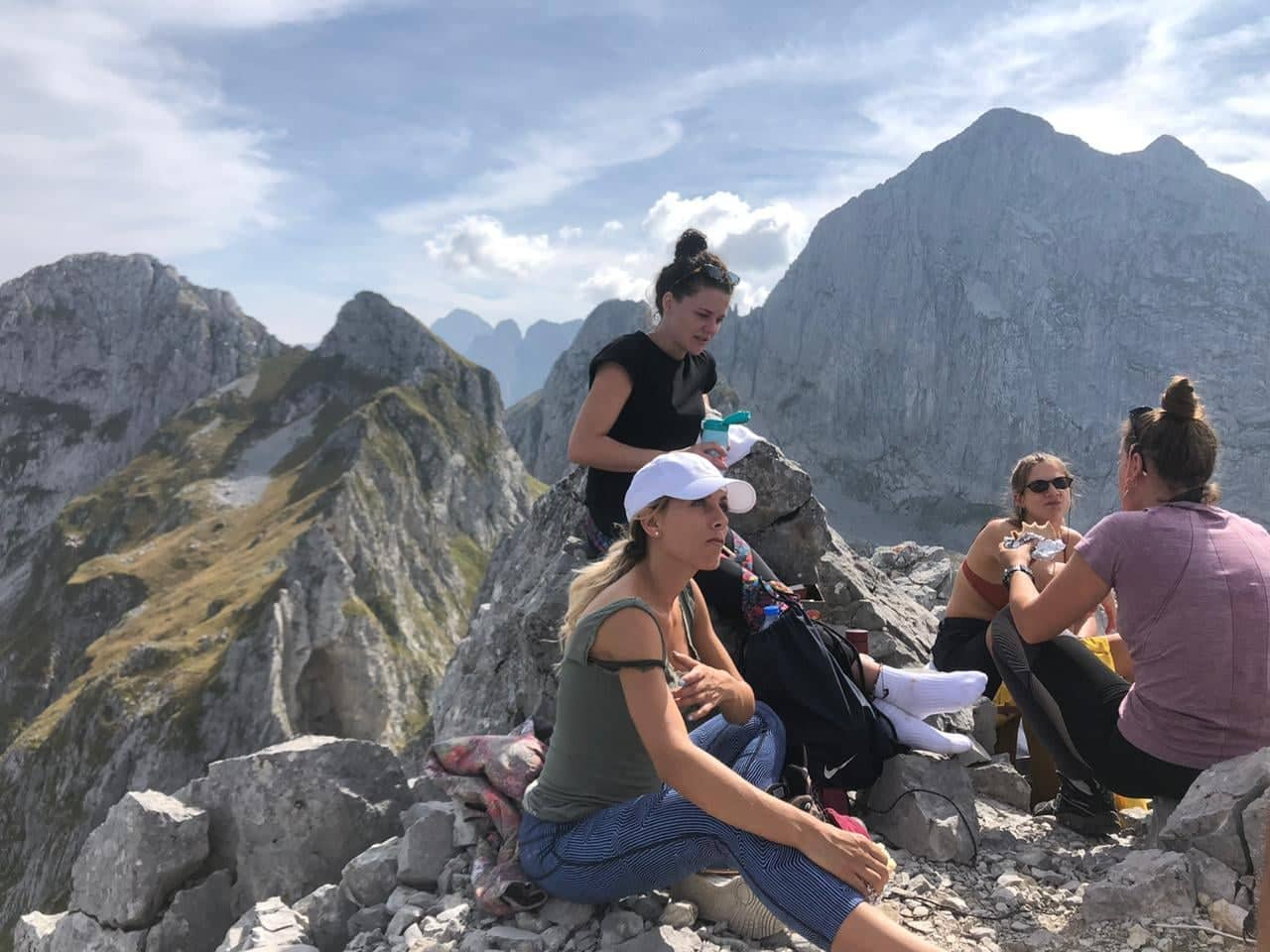
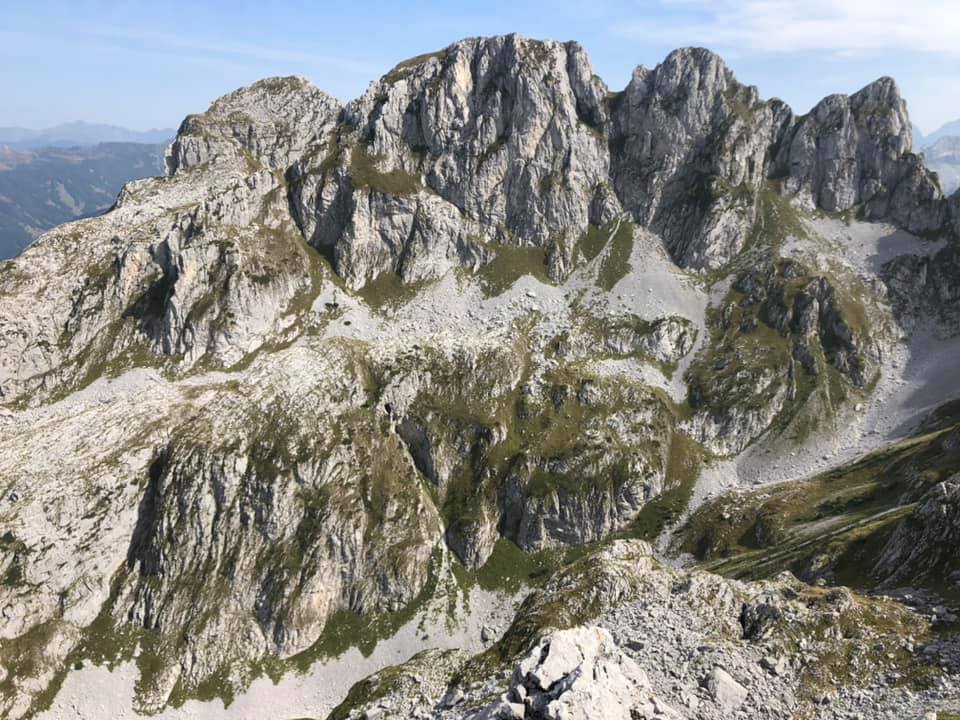
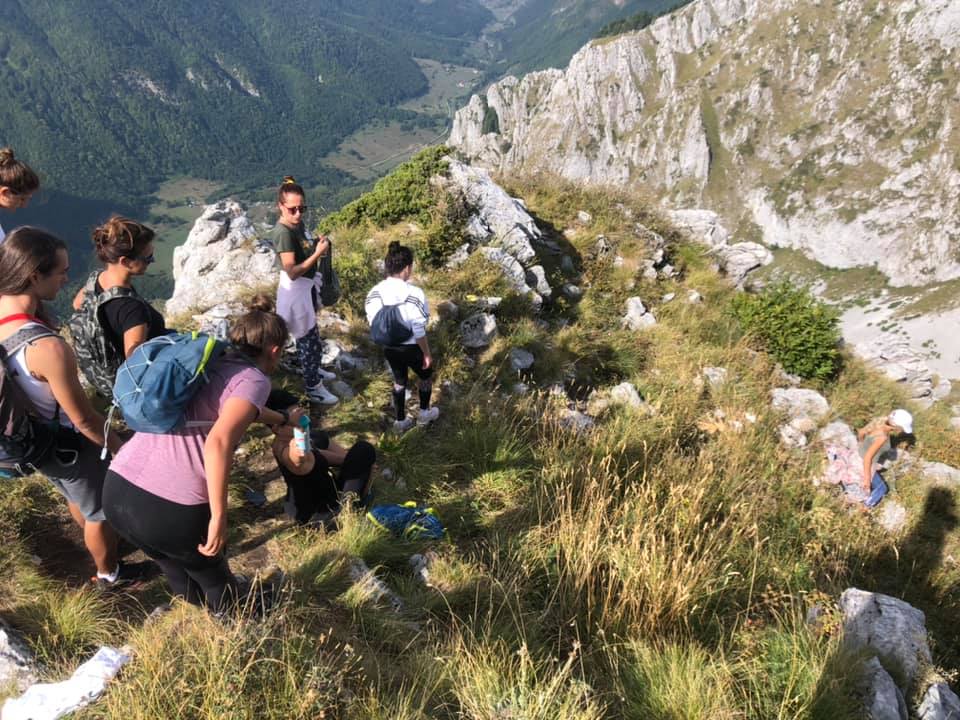
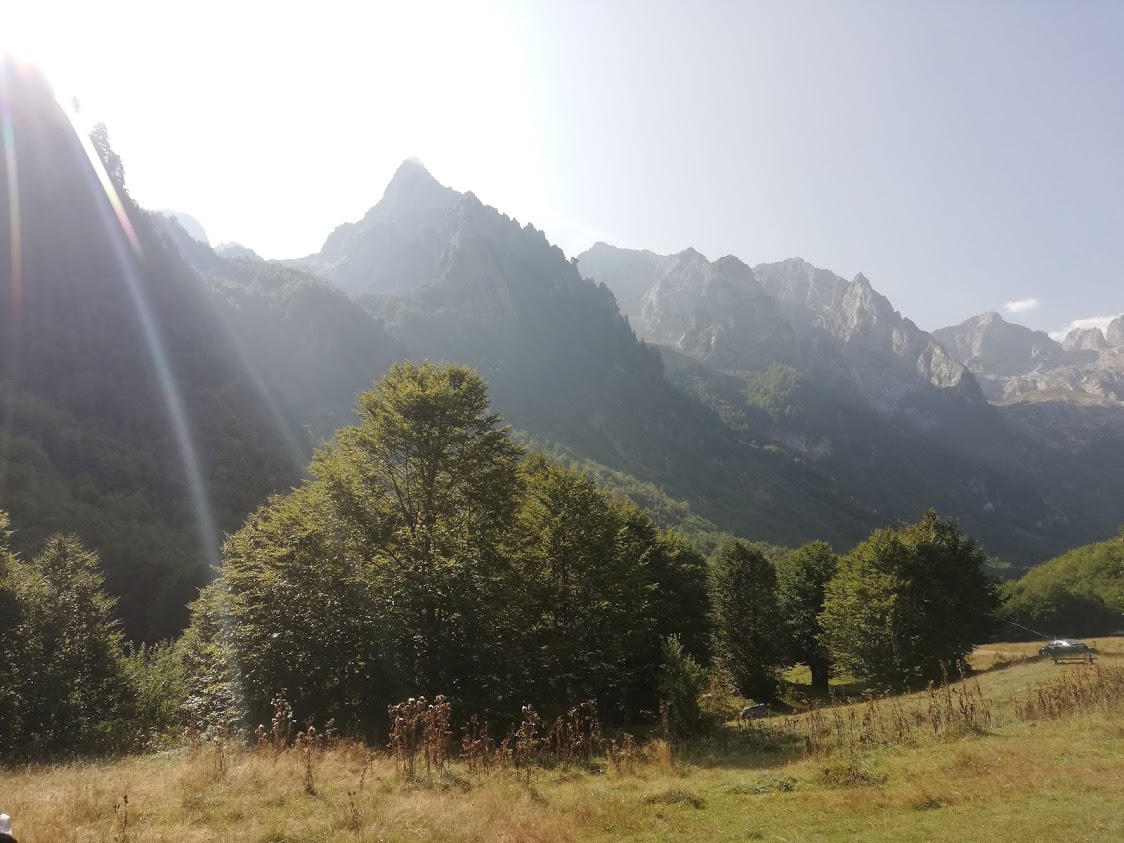
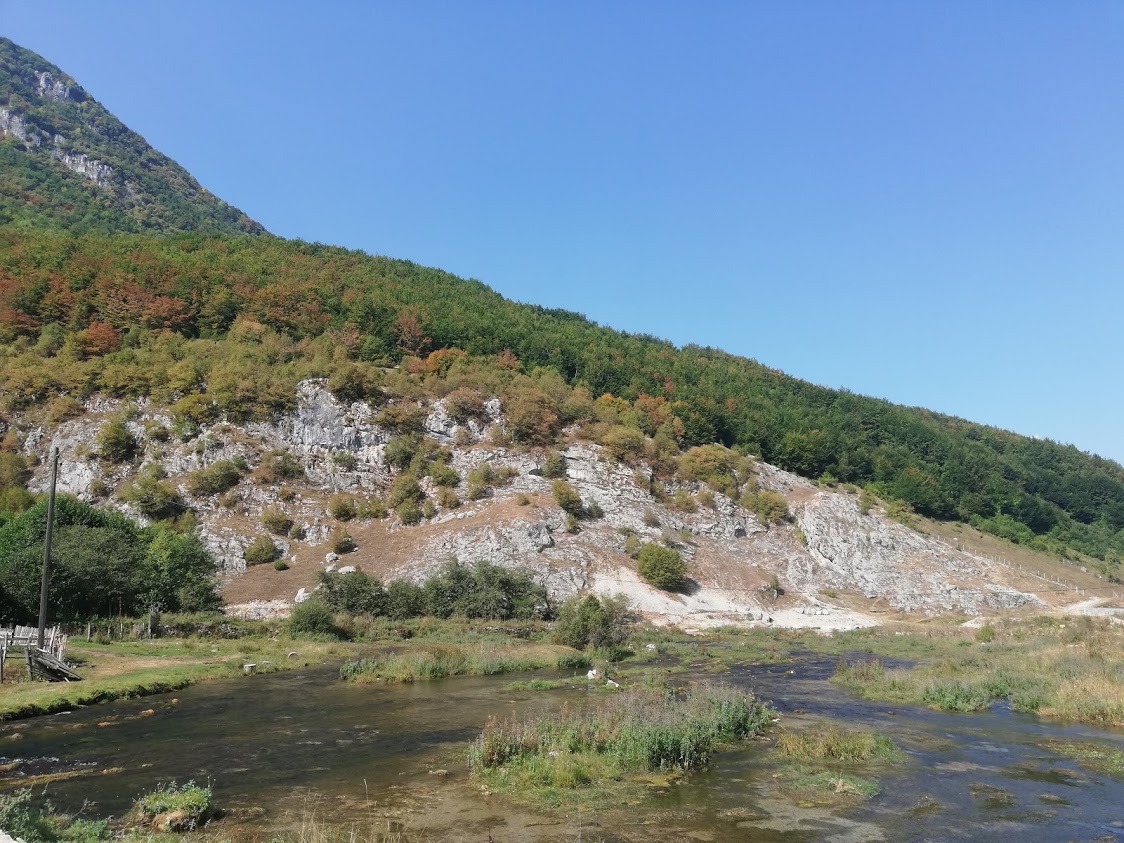
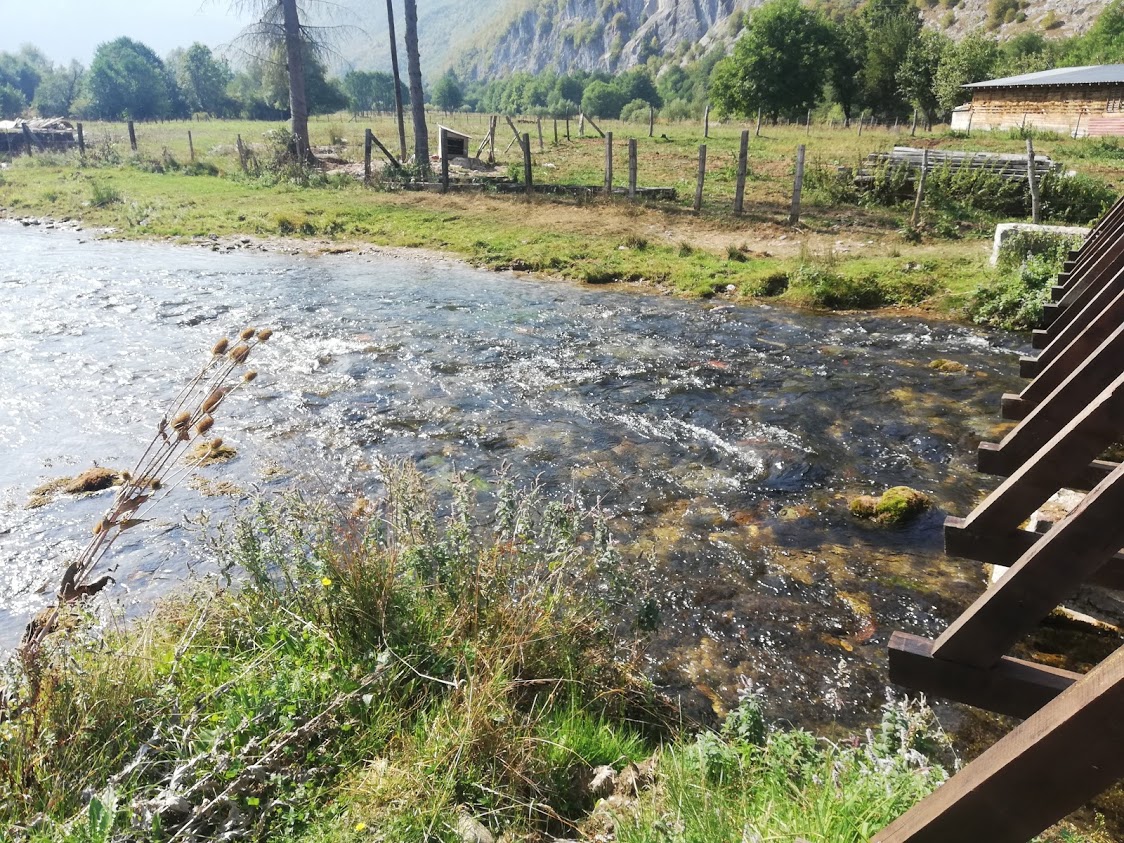
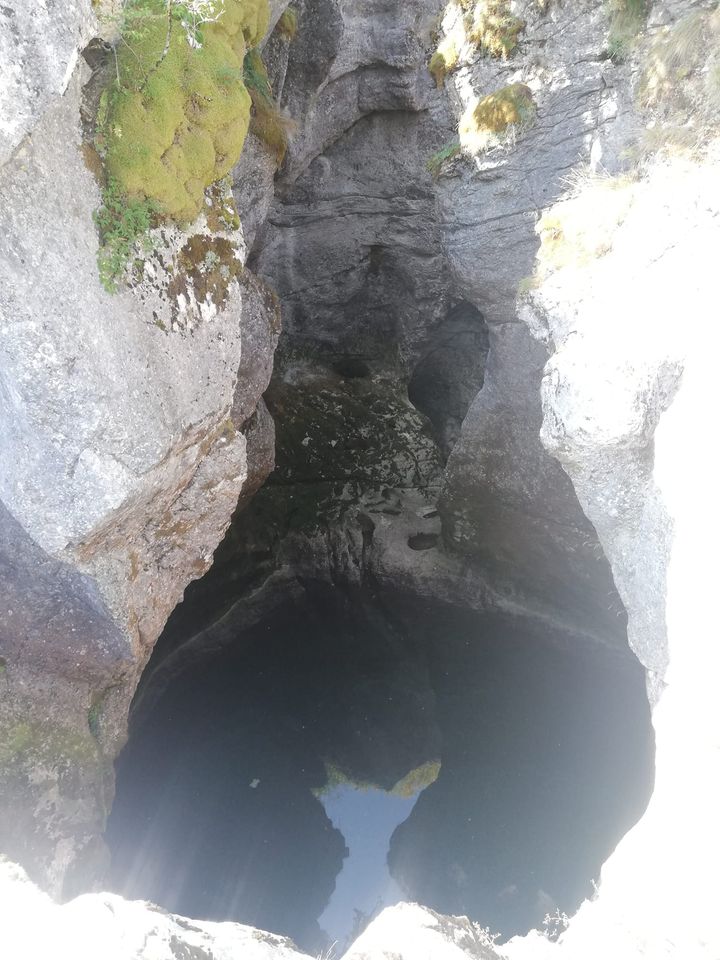

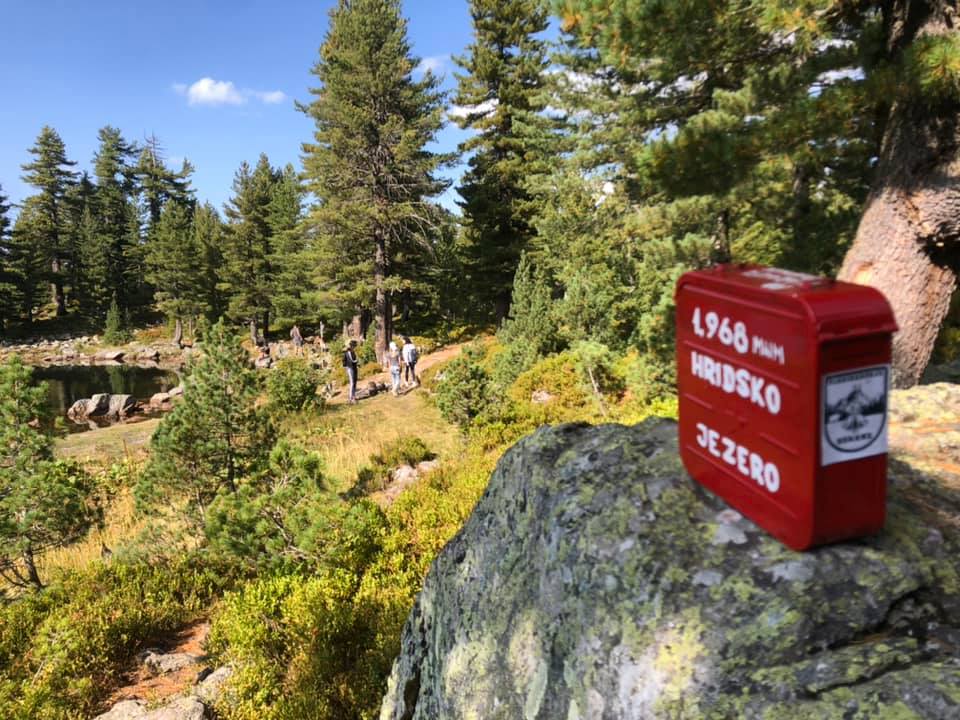
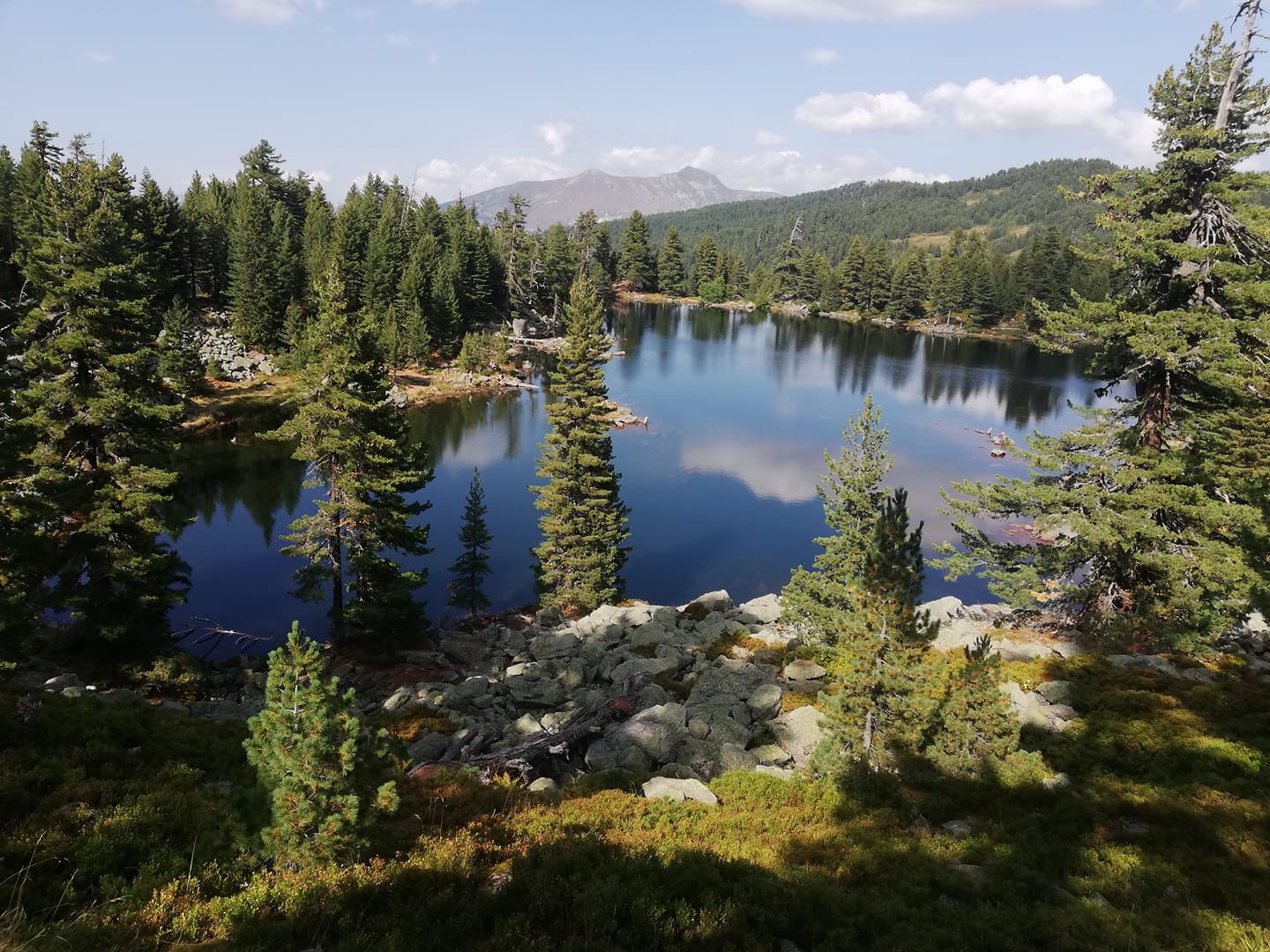
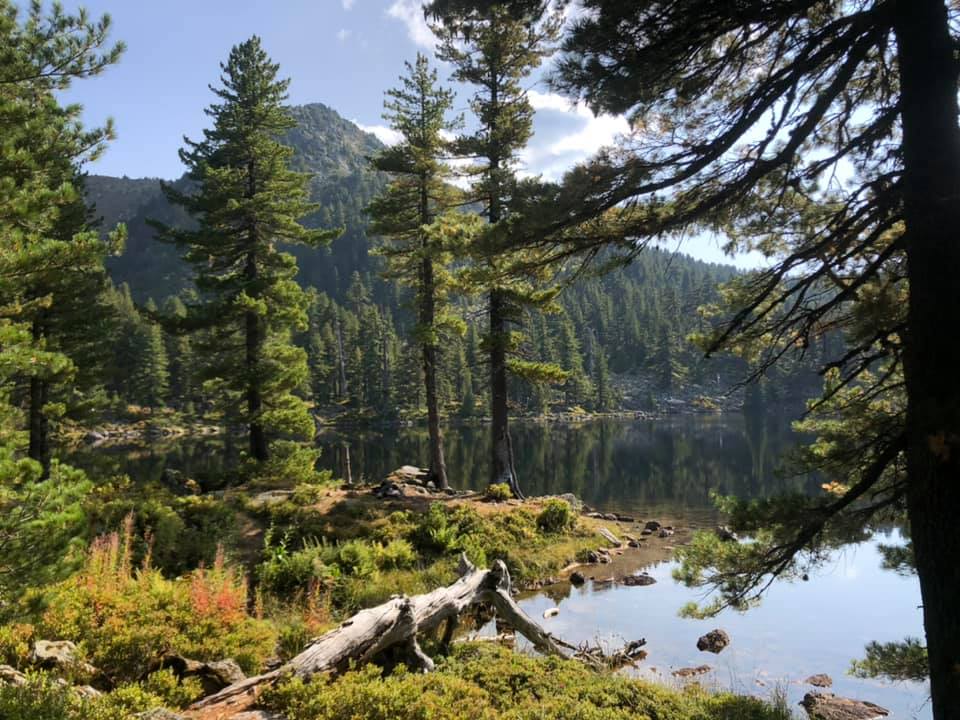
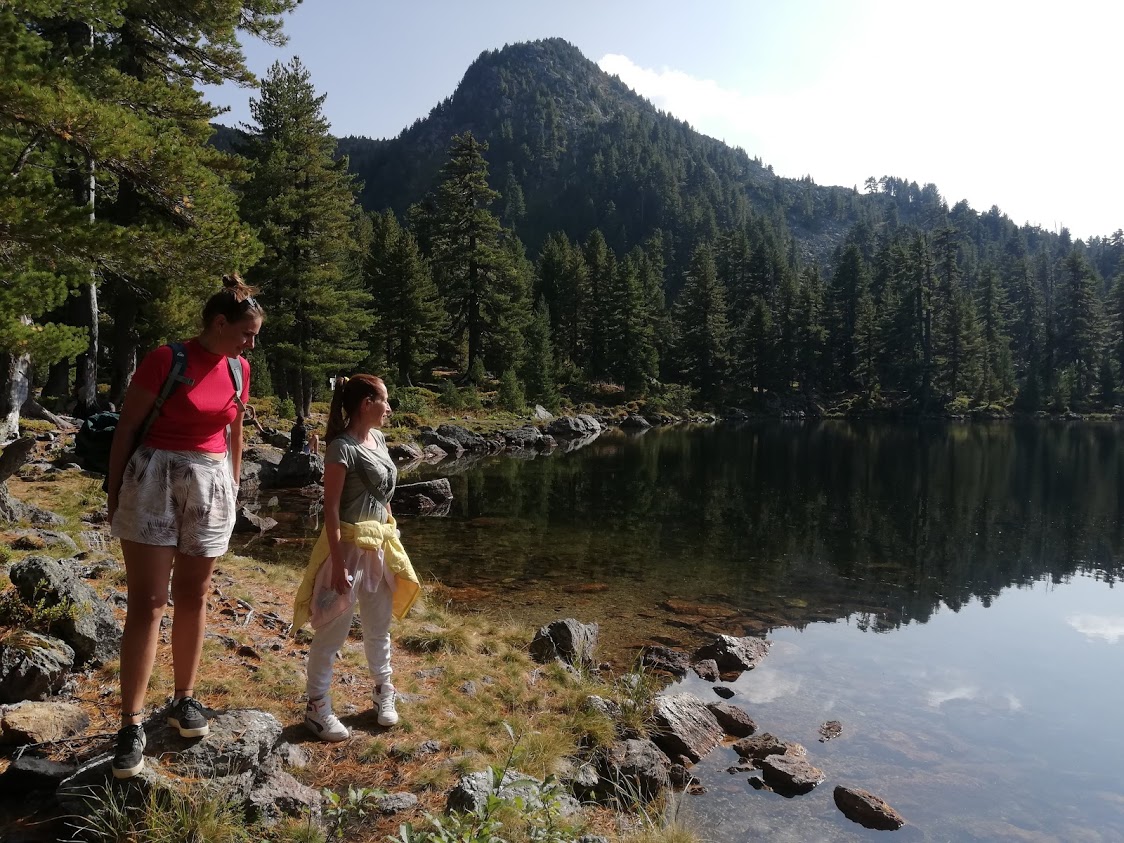
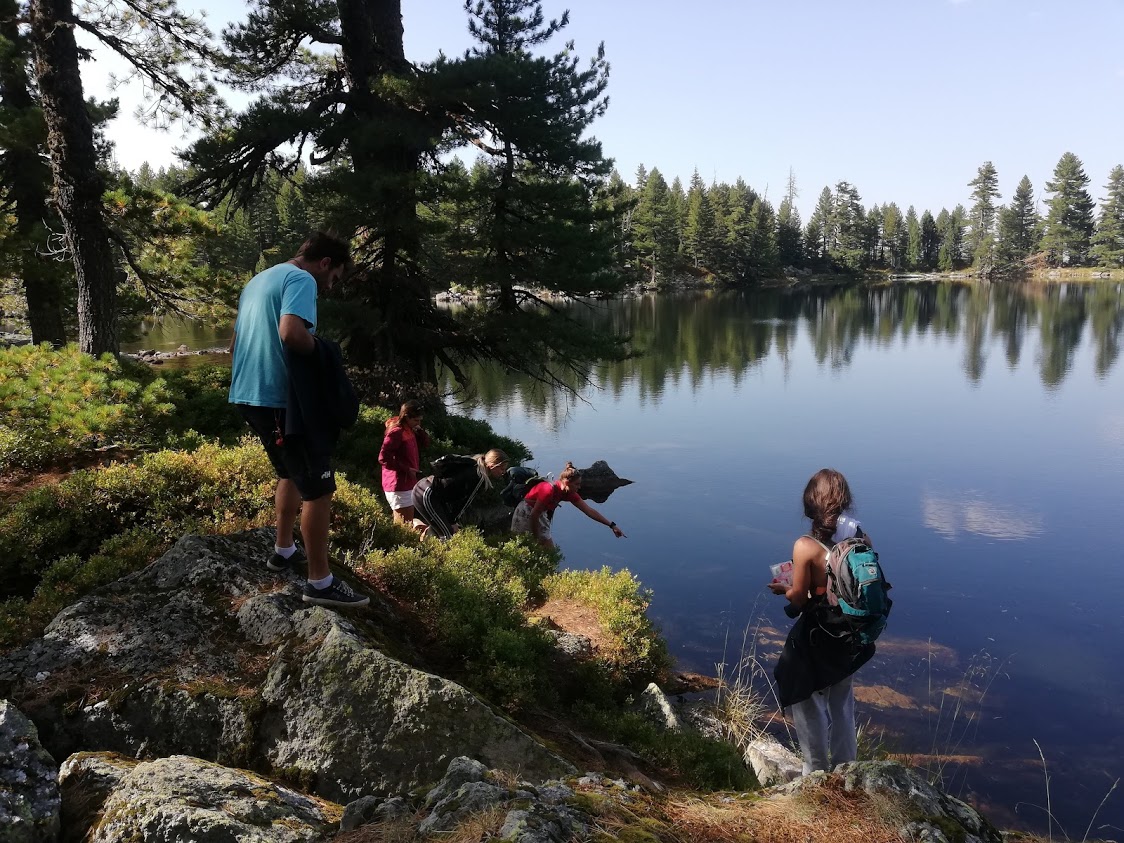

September 12, 2020 - In the coming days, from September 13 to September 17, 2020, the area of Montenegro will be affected by warm tropical air mass. This will cause high air temperatures, especially in the broader region of Podgorica and Danilovgrad (Zeta-Bjeloplavici region) and the coast with its low -surface vegetation. Tropical climates are expected, followed by increased to strong north-northeast winds. Significant fire warnings will be expected - the Directorate for Emergency Situations of the Ministry of the Interior announced.
The situation will be aggravated by the intensified to a strong north wind expected during Sunday, Monday, and Tuesday, especially at night.
According to the current predictions by the European weather center, no rain is expected in the central and southern parts of the continent until September 17.
Due to the above factors, the Directorate for Emergency Situations of Montenegro called on all competent public services to raise operational readiness to a higher level to be ready to respond to potential dangers to nature and human health. They have also called on the public to stay aware of the danger of fire in such conditions.
Department of Hydrometeorology and Seismology of Montenegro: Weather forecast for the next two days
Sunday, September 13
Podgorica: Mostly sunny and hot. The wind occasionally moderate, north and northeast. Morning air temperature around 23, highest daily up to 35 degrees.
Monday, September 14
Mostly sunny and warm. In the morning, in the north, fog in the valleys, and the afternoon, weak to moderate cloud development in the continental regions. Wind occasionally and in places moderate to strong, northerly. Morning air temperature 7 to 24, highest daily 21 to 35 degrees.
Podgorica: Mostly sunny and hot with weak to moderate cloud development. Wind occasionally moderate, north and northeast. Morning air temperature 23, highest daily around 34 degrees.
September 1, 2020 - After the people decided in Sunday's elections that Milo Djukanovic's DPS should go into opposition, the first phase of the transition towards a government change is underway in Montenegro, marked by images that are not new when it comes to Montenegrin society, which has long been ruled by divisions on various grounds. It seems that now the people have united to remove the DPS, which has ruled the country for 30 years. Despite calls from political leaders to refrain from celebrations and provocations on any grounds and celebrate the election success with family and friends, some people have shown readiness to continue to emphasize their differences in the streets.
The outgoing Democratic Party of Socialists (DPS), which rulled the country since 1991, links the electoral defeat to the Serbian Orthodox Church's influence and the Republic of Serbia, expressing fears that Montenegro could change its foreign policy course under the new government. At the same time, representatives of the three winning coalitions say their basic common principles are the rule of law, expert government, and continuing the EU accession process.
The winning coalitions that will form the new government have begun talks, informing citizens of the basic principles on which the future state administration will rest.
On the other hand, Montenegrin President and DPS leader Milo Djukanovic conceded defeat in the election. Still, he placed Montenegrin citizens' electoral will in a foreign policy context, implying a possible turn from the West to Russia.
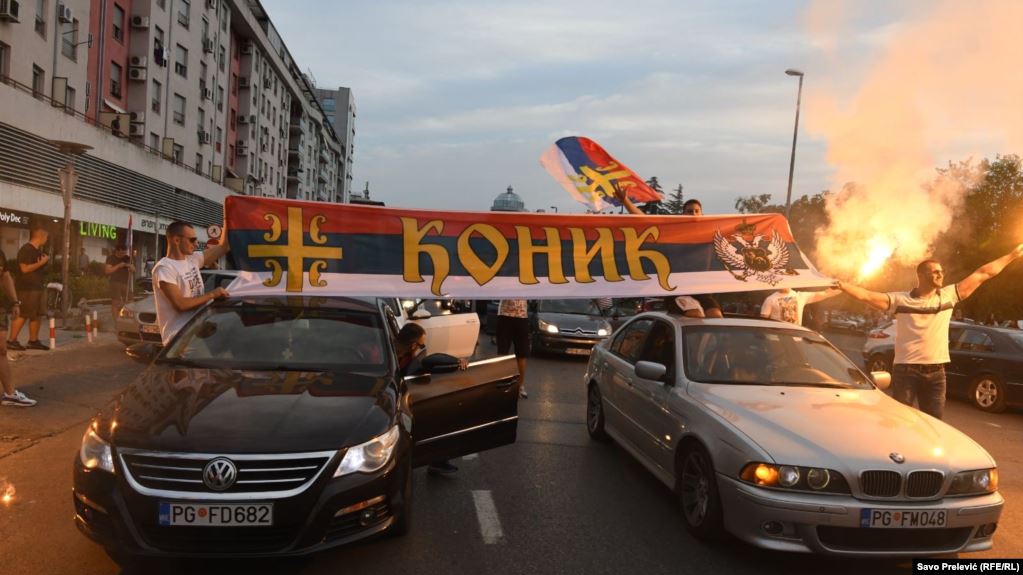
Celebration after the victory of the opposition in the elections, Photo: Savo Prelević, Radio Free Europe
Rallies were organized in several cities last night to celebrate the election victory, which in places escalated into riots and clashes. While the outgoing government characterized those incidents as the expressions of Serbian nationalism, the new parliamentary majority called on their supporters to postpone the celebrations and stay in their homes, refraining from any outbursts. As they said, possible incidents help only the DPS in its intention to provoke street clashes that would delay its departure from power.
Today, on its official pages on social networks, the DPS invited its supporters to a rally planned September 6 on Independence Square in Podgorica under the slogan "Montenegro first of all". Later it was announced that the DPS distanced itself from the organization of the gathering, saying that the meeting was organized by so-called "patriotic organizations".
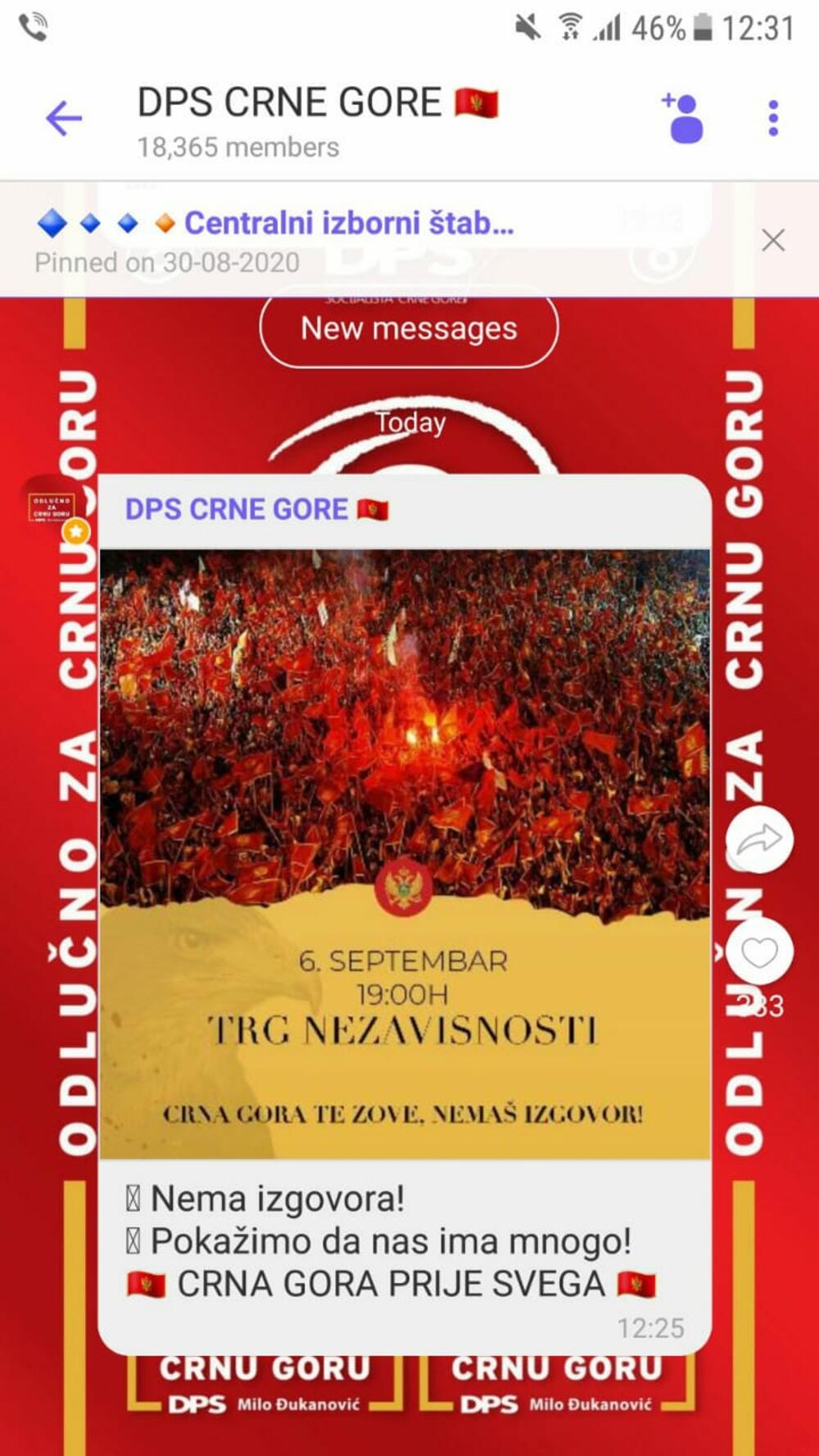
Printscreen Youtube, Source: Vijesti
SEC: Election results
According to preliminary data from the State Election Commission (SEC), based on 100 percent of votes counted, the current opposition, defined through three electoral coalitions, will have 41 seats in the Parliament of Montenegro. On the other hand, the Democratic Party of Socialists (DPS) with its traditional partners will have 40 seats. Representatives of the three winning electoral lists also called on representatives of minority nations to join the new parliamentary majority.
According to the State Election Commission data, the DPS won 35.06 percent, i.e., 143,548 votes, in Sunday's elections, and the coalition "For the Future of Montenegro" 32.55 percent (133,267). "Peace is our nation" won 12.53 percent (51,297), and "Black On White" 5.53% (22,649).
The Social Democrats won 4.10 percent (16,769), the Bosniak Party 3.98 percent (16,286), the SDP - Strong Montenegro 3.14 percent (12,839), the Albanian List 1.58 percent (6,488), and the Albanian Coalition Unanimously 1,14 percent (4,675)", as published on the SEC website.
The Croatian Civic Initiative did not pass the census, winning 0.27 (1,115), and the Croatian Reform Party 0.13 percent, or 532 votes, leaving the Croatian people in Montenegro without their representative in the new assembly.
76.65 percent of registered voters voted in the elections, i.e., 413,954, of which 409,451 were valid ballots.
Three winning coalitions: Montenegro remains on the path to Euro-Atlantic integration
Yesterday, a meeting was held between the leaders of the winning coalitions, "For the future of Montenegro," "Peace is our nation," and "Black On White" - Zdravko Krivokapic, Aleksa Becic, and Dritan Abazovic. They will constitute the future Montenegrin government and deliver the electoral will of the citizens.
- The new democratic government will responsibly implement all international obligations.
- The new democratic government will implement all necessary reforms for Montenegro to join the European Union as soon as possible.
- The winning coalitions agreed that the new, democratic government would be constituted by cadres who are experts in specific fields, regardless of their political, religious, national, or other characteristics.
- The new government will be fully committed to respecting the Constitution and enforcing the law, with amendments to all discriminatory laws and bylaws, including the Law on Freedom of Religion.
The three leaders are extending their hands to representatives of minorities with the desire to together build a more beautiful and prosperous future of Montenegro, came the announcement after the meeting of the new parliamentary majority's leaders.
Leaders of the new parliamentary majority call on their supporters to stay home
"Due to verified information that a significant number of paid provocateurs are trying to provoke incidents and unpleasant events, both in Podgorica and in other cities in Montenegro, we invite citizens to return to their homes and continue celebrating there. We must not allow any excuse for the outgoing regime to refute the undeniable results of the elections and the people's will," said the leader of the coalition For the Future of Montenegro, Zdravko Krivokapic.
Krivokapić said that peace has no price and that no one should be afraid that Montenegro will disappear. On his official Facebook page, he again asked people not to take to the streets, and announced that he would form a government in three weeks.
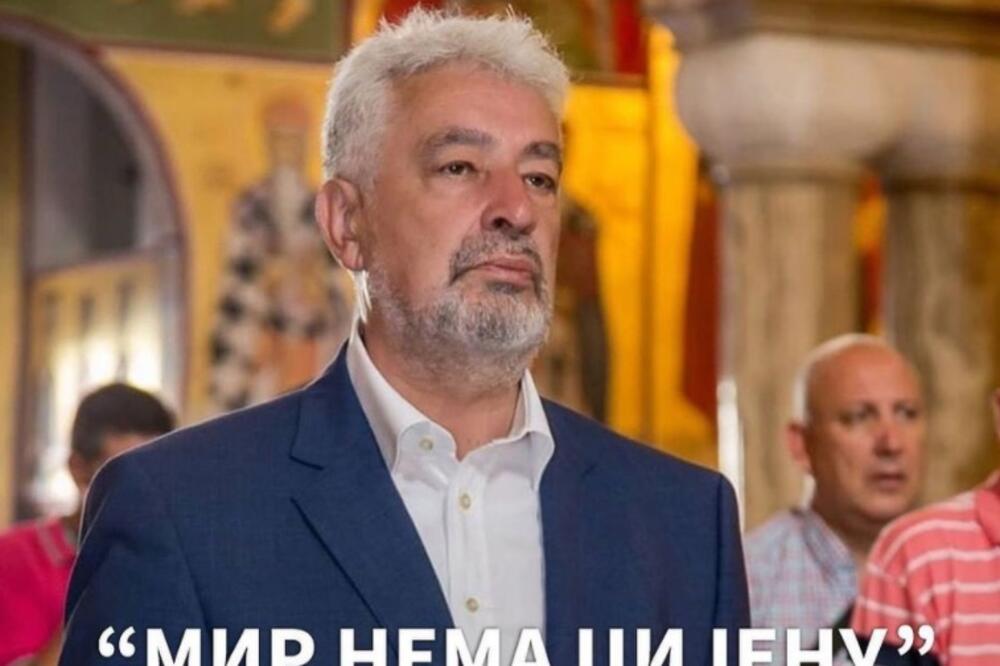
On the occasion of last night's events in several Montenegrin cities, the Black on White coalition leader, Dritan Abazovic, also reacted. "Every kind of violence or provocation from any side casts a shadow over the election victory in which corruption and organized crime are defeated. That is why I ask you to refrain from that and celebrate in your homes in a dignified way," Abazovic said.
"As never before, it is necessary to preserve peace, interethnic, and interreligious harmony. Please do not allow us to jeopardize the historical victory through our irresponsibility or that of planted individuals. Montenegro is the land of us all, so let's protect each other. Civic Montenegro has no alternative! Now we need wisdom; there will be time to celebrate,"- concluded Abazović, emphasizing that there are no compromises with Montenegro's national interests. "Montenegro will not become either Serbian Sparta or Greater Albania," he said.
He said that Montenegro will develop as a civil state and that the condition of the platform around which the Black On White coalition has gathered is an expert government.
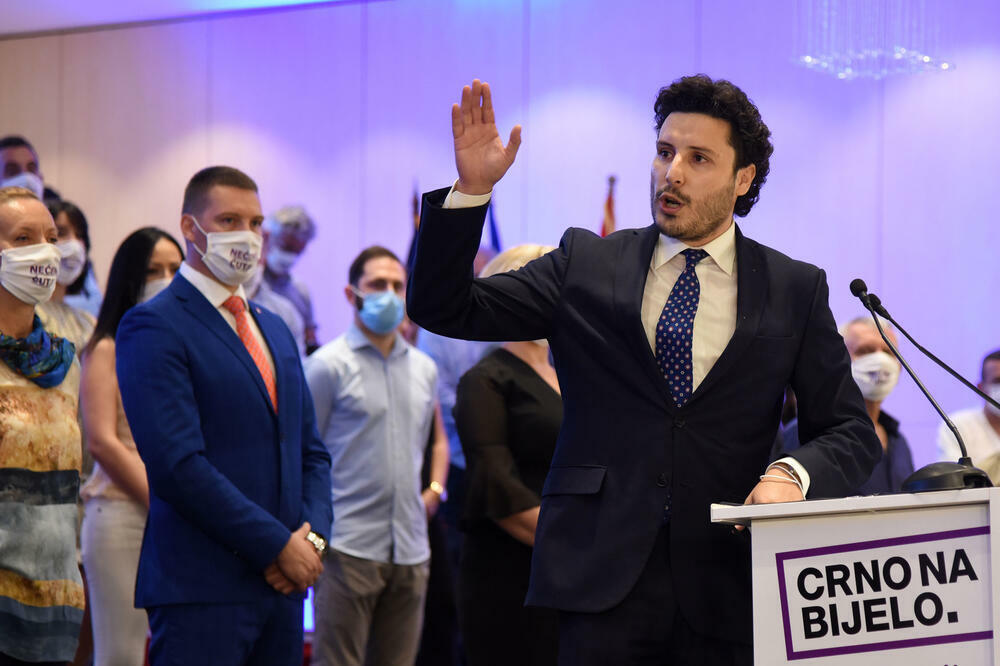
"Black on White" Coalition Leader, Dr. Dritan Abazović, Source: Civic Movement URA
"The announcement of the Democratic Party of Socialists of Montenegro, which has so far arrested children, the elderly and priests for allegedly violating the NKT measures, to organize a rally on September 6, is a transparent attempt to raise tensions and cause riots that only benefit them as the outgoing government. They are trying to deepen the divisions, hatred, and quarrels they have generated in the last 30 years, said the representative of the coalition "Peace is our nation" and the leader of the Democrats, Aleksa Becic.
"Gentlemen from the top of the DPS, the NKT you lead has banned public gatherings. But, since you are known as people who trample on Montenegro, its laws and its Constitution for personal interests, and now for personal frustrations, we must remind you that the votes have been counted. The election results are official, and that there is no need for a new count at any party rallies. Show that you have at least a shred of dignity towards the honorable people who voted for you and accept you scored well below the previous opposition's election result," stated Bečić.
He called on the Police Directorate to ban mass gatherings directed by the DPS and required by any party, "so that we can immediately start working on reconciliation of all. In Montenegro, there must be no winners or losers among the citizens. Corruption, crime, quarrels, and the mafia are defeated in Montenegro, not the voters."
People in Montenegro want peace; they want harmony, unity, and progress, said Aleksa Bečić.
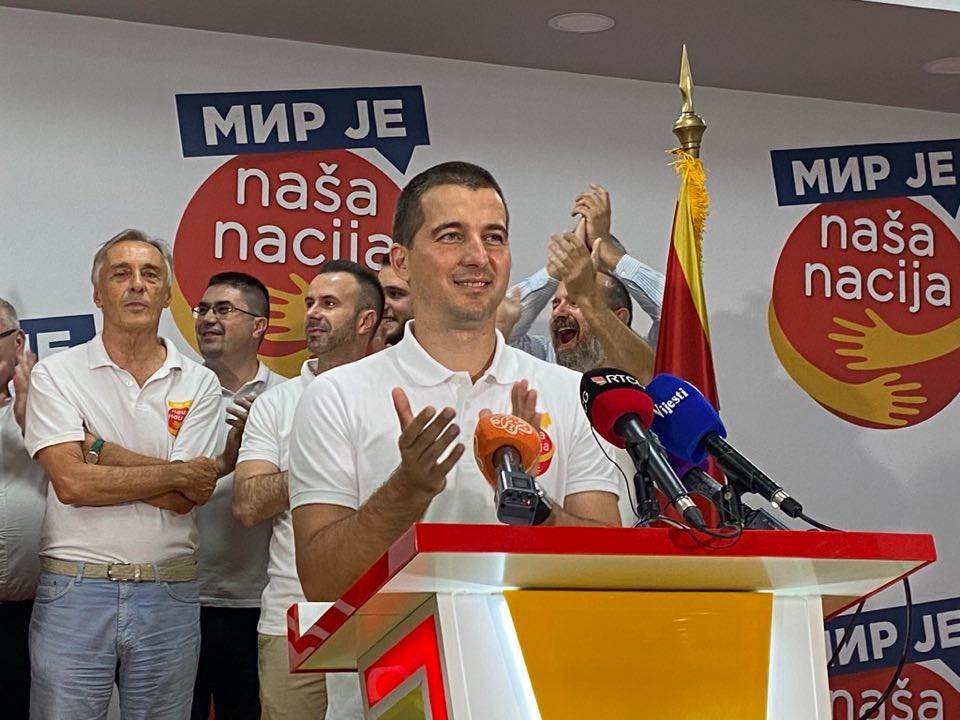
"Peace is Our Nation" Coalition Leader, Aleksa Becic, Source: mondo.me
Milo Đukanović admits defeat, he "sews" the success of the opposition to the Serbian Orthodox Church and the authorities in Belgrade
The President of Montenegro and the DPS, Milo Đukanović, said for "Newsmax Adria" that in Montenegro and the region, two approaches were opposed - a pro-Western course on the one hand and a backward nationalist one on the other, now awakened in Montenegro.
"The incidents did not surprise anyone, the celebration even less. There is always a reason to celebrate, but that celebration implies a civilized attitude towards other citizens and the need to preserve Montenegro's stability. Last night we witnessed an outburst of intolerance, aggression, primitivism who think differently, "Djukanovic said.
When it comes to forming a government, Djukanovic said, "we will soon expect the outcome and that we will receive an offer to form a government from those who will have 41 seats in parliament."
Djukanovic sees the reasons for his party's failure to retain power partly in the dissatisfaction of citizens with some policies and the manipulations of the church and official Belgrade over the Law on Freedom of Religion.
"President Vučić and the current policy of Serbia have shown very problematic intentions. The first is that they want to interfere in another state's internal political life, and the second is to try to revitalize the policy of Greater Serbian nationalism in the region. Both are very wrong and very destructive," said Djukanovic.
He said that the assumptions that the DPS would defend the government by all means, were not correct.
"Even today, the DPS is a force that will try to keep Montenegro on the European path. I believe that in the bloc for Europe that will be formed in the parliament, we will stand for our government's political heritage," said Djukanovic.
He said that Montenegro has a European future and that he hopes that Montenegro will reach it.
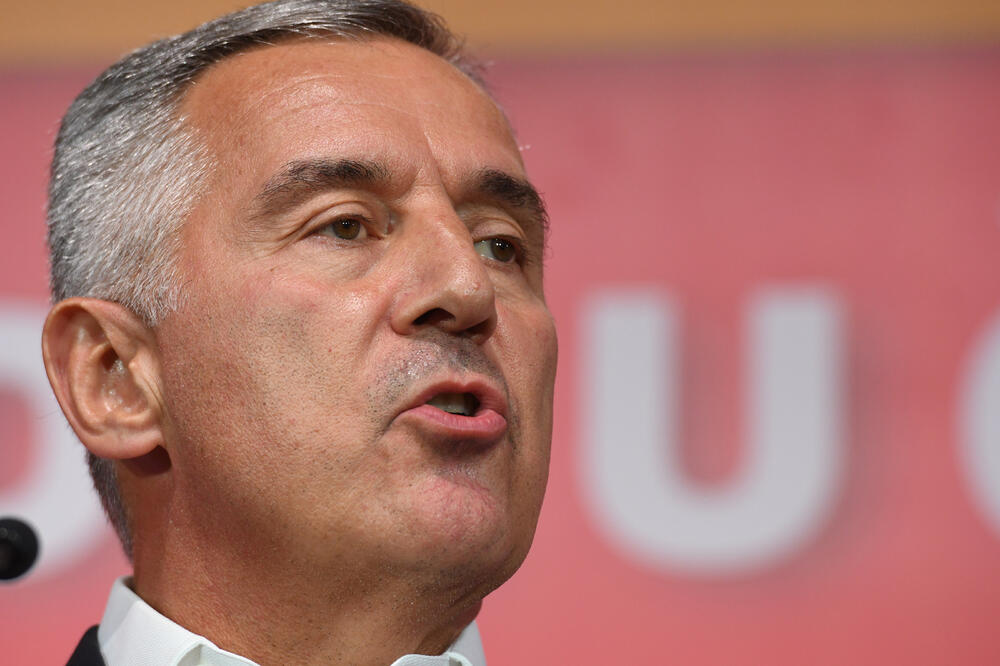
DPS Leader, Milo Đukanović, President of Montenegro, Photo by Savo Prelević, Vijesti
European Commission on elections and post-election atmosphere in Montenegro
"On August 30, Montenegro held parliamentary elections and local elections in five municipalities, according to an electoral, legislative framework that is mostly unchanged from previous elections, in the challenging context of the COVID-19 pandemic. The elections were peaceful and competitive, with a high turnout, monitored by local and international observers accredited by the State Election Commission, European Commissioner for Neighborhood Policy and Enlargement Negotiations Oliver Varhelj, and EU High Representative Josep Borel said in a statement by the EU delegation to Montenegro.
Preliminary findings and conclusions from international observers from the Office for Democratic Institutions and Human Rights (ODIHR) and the OSCE Parliamentary Assembly emphasize that the elections were conducted transparently and efficiently. They also note the highly polarized debate on church and national identity issues and some concerns for the ruling party's inappropriate advantage and unbalanced media coverage.
Following the publication of the final OSCE / ODIHR report and recommendations, all political actors and relevant institutions should engage in a transparent, determined, and inclusive dialogue on implementing these recommendations to overcome long-standing electoral shortcomings well before the next elections.
"We now expect the Constitution of a new parliament and the formation of a new government that will continue Montenegro's stable path towards the EU. Montenegro has made significant progress in its EU accession process. The months ahead must be used to deepen and accelerate political and economic reforms, especially the rule of law, with the next key milestone being meeting the provisional criteria for Chapters 23 and 24 in the rule of law," Varhelji said.
The European Union is fully committed to providing further support to Montenegro in the EU integration process and economic recovery after the crisis caused by the COVID-19 virus, including through the forthcoming Economic and Investment Plan for the Western Balkans.
"Freedom of assembly, association and expression are fundamental rights of the European Union (EU), which should be exercised without disturbing public health and with full respect for the rule of law and public order and peace," the European Commission (EC) said, commenting on the announced gathering "Montenegro First of All."
"We are closely following the political developments towards the announcement of the final results of the elections held on August 30 in Montenegro. In that context, we expect the Constitution of a new parliament and the formation of a new government that will continue Montenegro's stable path to the EU." A European Commission spokeswoman Ana Pisonero Hernandez told Vijesti, answering questions regarding the DPS' invitation to gather on Sunday, in high health and safety risk conditions.
The US Embassy congratulated Montenegro's citizens, acknowledged the OSCE findings, and called for peace and tolerance
In Podgorica today, the US Embassy welcomed the conclusions of the OSCE / ODIHR International Election Observation Mission on the parliamentary elections in Montenegro.
"We congratulate Montenegro's citizens on holding peaceful, participatory elections with the participation of more than 76% of the electorate, despite the COVID-19 pandemic," reads the message published on the FB page of the US Embassy.
The US Ambassador to Montenegro warned that all parties must act peacefully and avoid violence in the post-election days.
"I am concerned about reports of violence in Montenegro," said HPP Judy Rising Reinke.
"Montenegro is recognized for its tolerance and inclusiveness. The calm we saw on election day should prevail. All sides must act peacefully and avoid violence. Dialogue and the protection of minorities are the keys to democracy," Rising Reinke said on Twitter.
Source: Vijesti
August 14, 2020 - The National Coordination Body for Infectious Diseases (NKT) decided today, at the suggestion of the Institute of Public Health of Montenegro (IPH), to allow residents of all countries in the region and residents of the United States to enter Montenegro following the stabilization of the epidemiological situation in the area. This will be subject to the appropriate PCR or ELISA test. Catering facilities will also be permitted to move the end of business hours from 24:00 to 01:00.
The IPH proposal states that the mitigation of measures has been designed taking into account the current level of the new coronavirus in Montenegro and the surrounding countries, and after consultations with representatives of the tourism industry and the association of hoteliers and caterers.
Residents of the United States, Serbia, Kosovo, Albania, Bosnia and Herzegovina, and Northern Macedonia, as well as citizens of Montenegro who have resided in these countries, may enter the country under the following conditions:
That they provide a negative result for a PCR test for new coronavirus (SARS-CoV-2) or a positive result for antibodies to new coronavirus (SARS-CoV-2) class IgG obtained by ELISA serological test;
That the tests be issued by a registered laboratory and are not older than 72 hours at the time of entry into Montenegro;
For 15 days before entering Montenegro, they did not stay in any of the countries from which entry into Montenegro is not allowed.
The obligation to take the test does not apply to children up to the age of five.
Residents of countries from which entry into Montenegro is not allowed may come from the USA, Serbia, Kosovo, Albania, BiH, and Northern Macedonia under the same conditions as residents of these countries if they have resided in one of these countries for at least 15 days before entering Montenegro.
Following the stabilization of the epidemiological situation, the NKT has decided to extend the current permit for the operation of catering facilities (restaurants, cafes, cafeterias, hotel restaurants, etc.) from 24:00 to 01:00.
All measures will take effect on August 15, 2020, at 00:00.
At this time, the National Coordination Body for Infectious Diseases calls on the citizens of Montenegro and foreigners residing in the country to adhere to all epidemiological measures.
August 1, 2020 - Montenegro's power games between church and state may be about to create a Balkan explosion - this was the title given to Gawain Towler's comment published on July 31 in the UK broadsheet The Telegraph. Towler visited Montenegro last month, and his general conclusion is that "the state-sponsored persecution of the Serbian church in this scrap of Adriatic paradise could soon see mass civil unrest."
Gawain Towler served as Director of Communications for the Brexit Party until December 2019, and was previously Head of Press for the Europe of Freedom and Democracy Group in the European Parliament (UKIP). A former journalist, he has had papers and articles published on European and International Development by the Centre for Policy Studies and elsewhere.
The email arrived in my inbox, breathlessly claiming that the tiny Balkan nation of Montenegro is facing a, “state-sponsored campaign of persecution of Christians in the country and the demolition of their Church, one of the oldest in Europe”.
My interest piqued, partly because the very name is redolent of Ruritania; partly because the founder of my school in 1897, one Lex Devine, was half Montenegrin, whose habit of hiding in trees when the creditors came round populated my schoolboy imagination. Mostly, because it highlighted an article from Newsweek from June, co-authored by Steve Baker and Tim Farron, calling for Nato sanctions on the tiny ex-principality for the reasons above.
That these two, diametric opposite MPs were singing from the same song-sheet raised an eyebrow. In recent days negotiations between the Government and the Serbian Orthodox Church have broken down completely. These centre on a row between the Government of 30 years, led by former communist leader, hardman Milo Dukanovic and the church.
Today it is the only civil society focus of opposition to the Government. The epicentre of the dispute is the legal status of property owned by the church within December’s Religious Toleration legislation. The split is bluntly visible.
The leader of the church is the Metropolitan bishop of Montenegro and the Littoral, Amfilohije Radovic. A Serbian nationalist with a fine line in bloodcurdling curses who flings out excommunications with added malice and an interesting view of people to entertain, including Radovan Karadic, and the notorious warlord Arkan. His views on homosexual rights would raise hairs in Tunbridge Wells, let alone Soho.
What’s happening in this scrap of Adriatic paradise? And why are two decent men, on utterly different ends of the UK political spectrum, adding their weight to a cause backed by someone described to me by a former senior director of the Montenegrin secret service, who is no supporter of the Government, as “the most evil and dangerous man in the country”?
Hold on, Montenegro is peaceful, didn’t get involved in the awful bloodletting of the Yugoslav civil war, and most importantly is over 70% Christian, is a member of Nato and wants to join the EU. It would be madness for it to either persecute Christians or demolish churches. What’s going on?
At a loose end, Covid’s grip loosening and with friends who have been trying to get me to visit the place for years, I went. That my flight went via Milan and Warsaw gives an idea that the country, only 1100 miles away, is better reached by boat; the super yachts gleaming in its main marina, testify to this.
Montenegro has a cultural mix that puts any London suburb to shame, though it is almost entirely ethnically Slavic. History has left it with a huge variety of religions, Catholic, Serbian and Montenegrin Orthodox, Muslim, Jewish and the rest. Just over 50% are Serbian Orthodox, about 20% Montenegrin Orthodox, 20% Muslim, 5% Catholic and smaller numbers atheist – a hangover from communism, and other faith groups.
National borders cut right through cultural borders creating a multilayered patchwork, a three-dimensional powder keg. The current row centers on the Religious Toleration bill, which amongst other things requires all faith groups to register as such (or they cannot access state funding and so on, though they can still continue their religious activities), and this is the key point, that they must prove ownership of property built before 1918 or they will be sequestered by the state.
That date is significant, as it was when Montenegro was annexed by the Kingdom of Serbia. This was disputed by the national assembly despite it being convened by the Serbian authorities but was encouraged in its decision by a large detachment of Serbian troops that surrounded the building until the correct decision was reached.
Everybody I spoke to, historians, political activists, representatives of the Government, the various churches and ordinary citizens had one thing in common. Though the legislation was passed in 2019, and the election is next month, at least three quarters of every conversation about politics majors on 1918.
For added spice and comprehension, a variety of dates from 1200 through to the 1860s mostly involving brave Montenegrin warriors, taking on all comers would be included.
All this history produces a heady and volatile mix. The Government is not above criticism. The President has been accused of a series of issues - all of which he would deny - like election fixing and corruption. There has been intimidation and murder of journalists attributed to mafia and gangsters. His Government is regularly likened to a criminal enterprise and financial scandals involving his family are rife.
After 30 years, many, including some in his own governing Party of Democratic Socialists, wish for him to stand down. The opposition is weak, and the only institution that has the wealth and scope to oppose him is the Serbian Orthodox church. It is in the Government’s crosshairs, being accused of being in the pocket of Serbian, and thus Russian interests. But it too is no pin up boy for progressive values.
In Orthodoxy, the normal situation is that the church is part of the construction of the state, ‘autocephalic’, or whose hierarchy is independent of any other. But, claims Father Mihail Backovic, “We made Montenegro”.
Backovic, a man of God who served in Serbia’s pre-2006 paratroop special forces, is the Metropolitan’s right-hand man. He represents a church whose primary loyalty is to a different state, Serbia. He regards himself as having loyalty to, 'God, Serbian and Montenegro", just as I am English and British.
The Montenegrin Orthodox church was wound up in 1918, as without a state, it had no function. Now it has reformed and wants access to the churches that it claims are its own patrimony. Their non-canonical leader, Archbishop Mihailo Dedeic, wants access to these old churches, “we fear the disappearance of Montenegro itself if we do not do this,” citing the importance of independent national churches.
Today he sits in his garden, drinking shots of rakia, a couple of hundred yards from the Monastery of Cetinje, the seat of his archopponent. It was rigged to explode when the Turks took it in 1692, rather spoiling their party and killing dozens. A fact everybody repeats with relish.
The row between church and state is not about faith at all, but about power and money. The Government wants it and the church has it.
The monastery of Ostrog alone, an impossibly romantic place halfway up a cliff, raises tens of millions a year. The church is prepared,
I’m told, to put “250,000 on the streets after the election”, which, given the population is 600,000 is significant. Negotiations have broken down completely, despite the Government offering the concession that it would not be up to the Church to prove ownership, but that the onus would be on the state.
The church walked out, muttering darkly. A meeting of Serbian Orthodox bishops and senior clergy was summoned in Podgorica and has been followed up by meetings in dioceses in Serbia, Bosnia and elsewhere, beyond Montenegro’s borders.
The working assumption is that these meetings are to co-ordinate non-Montenegrin aspects of the post electoral protests. They claim to be of the country, but their actions suggest that their loyalties and capabilities are elsewhere. This allows the government to portray them as an asset of a hostile foreign power, Serbia (with the Russian bear just out of sight in the shadows). They do not see why they should be treated like other faith groups given they are the largest. They do not see why they should provide full title to their property, despite others, such as the Catholic church, being happy and willing to do so – because the transfer of property in 1918 was by fiat.
Supporters of the church believe that if property is transferred, a range of stunning monasteries will, in short order, become luxury hotels for cash rich guests, with the profits finding their way into the pockets of government officials and their friends. And all this is the lead up to fiercely contested elections at the end of August.
Many roadside restaurants boast a specialty, “Fish on Fire”. The fear of pretty much everybody in the country is that come September, it will be the country, not the fish that are on the barbeque.






